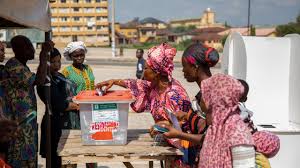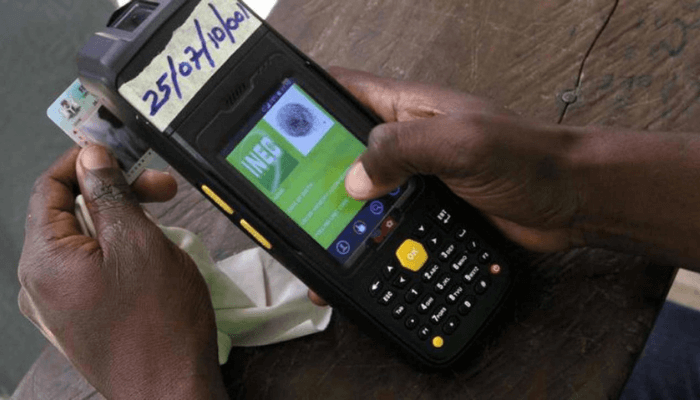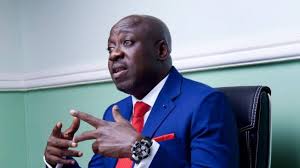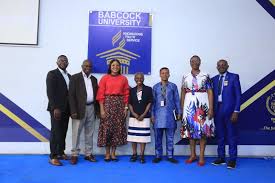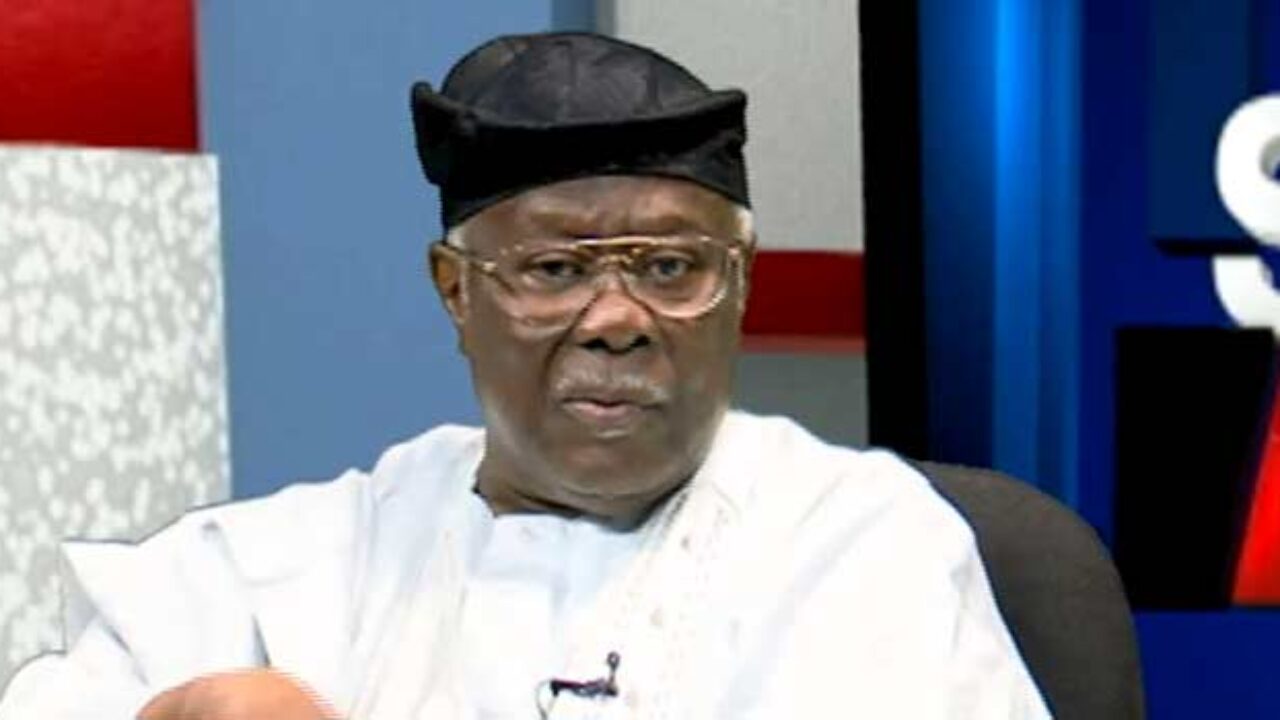Electoral Act amendment: Finally, NASS okays e-transmission of results, direct primary
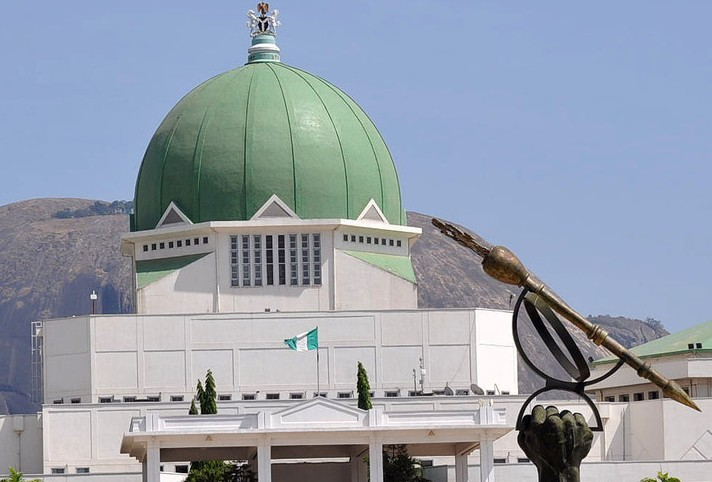
“PDP kicks, says no party has right to impose its processes on another
*APC tripartite c’ttee disagrees on direct primaries, says Buhari will make final decision
Tunde Opalana & Haruna Salami, Abuja
The National Assembly on Tuesday finally okayed the preference for the Independent National Electoral Commission (INEC) to transmit election results electronically, rather than submitting its constitutional responsibility to any other organ of government.
The legislature as well resolved that political parties should adopt direct primary as mode of electing their candidates for elective offices.
These resolutions were part of the final recommendations of both the Senate and House of Representatives Conference Committee report on a Bill for an Act to repeal the Electoral Act No.6, 2010 and enact The Electoral Act 2010.
The conference committee considered the differences in 21 clauses (1,5,6,15,16,,17,23,24,31,36,43,49,50,52,63,76,87,97,98,117 and 135) and the Explanatory Memorandum.
Senate Leader and chairman of the Conference Committee, Senator Yahaya Abdullahi (Kebbi South) while presenting the report at Senate plenary on Tuesday said “the Bill is now ready for passage and Presidential Accent” while expressing joy that the “citizens’ top priorities” on the Electoral Act Amendment including the use of technology have been addressed by the Electoral Bill, 2021″.
According to Senator Abdullahi, the Senate versions of clauses 52 and 87 among others were adopted.
Recall that the Senate did a re- committal of the amended clauses 43, 52, 63 and 87 passed on July 15, 2021 following consideration of the Senator Kabiru Gaya-led INEC Committee.
The National Assembly conference committee, however, on Tuesday, passed clause 52 to read “subject to section 63 of this bill, voting at an election and transmission of results under this bill shall be in accordance with the procedure determined by the Commission.”
The conference committee also approved Clause 87 to read “a political party seeking to nominate candidates for elections under this bill shall hold direct primaries for aspirants to all elective positions, which shall be monitored by the Commission.”
In conclusion, Senator Abdullahi said “it is imperative to point out that with the successful harmonisation of this Bill, a process that started from the 7th Assembly through to the 8th National Assembly has now been completed by the 9th National Assembly”.
Meanwhile, the Peoples Democratic Party (PDP) on Tuesday, said it received the news of the passage of the harmonized electoral act amendment bill with mixed feelings, faulting the direct primaries for nomination of candidates for elections by political parties.
In a late statement issued by its spokesman, Kola Ologbondiyan, the PDP held that it is the inalienable right of each political party, “within the context of our constitutional democracy, to decide its form of internal democratic practices including the processes of nominating its candidates for elections at any level.”
The statement further read: “The PDP believes that no political party should force its own processes on any other political party as the direct primaries amendment, a practice of the All Progressives Congress (APC), sought to achieve.
“Having stated this, the PDP shall, within the next 48 hours, make its final decision in respect of this amendment known.”
In a related development, an enlarged Tripartite Committee set up by President Muhammadu Buhari to resolve differences within the All Progressives Congress (APC) has disagreed on the use of direct primaries by parties to select their candidates.
At the end of an enlarged meeting on Tuesday which held in the State House and chaired by the Vice President, Professor Yemi Osinbajo, the committee which consists of the Executive, Legislature and the APC, clearly failed to convince members of the National Assembly on the need to provide an alternative for the direct primary option.
This meeting came hours after the passage of the electoral bill by the National Assembly which has approved direct primaries as sole mode of primaries upon which political parties will pick candidates for general elections.
Speaking to journalists at the end of the meeting, a former governor of Kebbi State and serving senator, Adamu Aleiro, said what the National Assembly had done in providing direct primary for parties is the best for the country.
Speaking against the call by APC governors to dump the provision, he maintained that the National Assembly had been cooperating with the Executive, saying that “but on this, we cannot be coerced to change our position.”
However, also speaking after the meeting, Kogi State governor said the fear of the Executive is the lack of alternatives provided in case the direct primaries fails.
He said the final decision on the matter rests with President Buhari who he noted will decide whether to assent to the Electoral Bill or return it to the National Assembly.
The governor said if the president decides to return the bill, it will not be the first time, adding that if he assents to the bill, the governors will have no choice but to work for its implementation.
According to him, “this is the Tripartite Committee set up by the President being the executive, the legislature and our great party to ensure that every topical issue that affects the people of this country at various arms of government is well discussed by the party and taken good decision in the best interest of everybody.”
On whether the governors were comfortable with the decision of the lawmakers, he said: “I don’t think any governor or anybody whatsoever as far as APC is concerned is afraid or has any reservations as far as our participation is concerned.
“The only concern is the implication of having only one option. In case an option fails what happens?
“If for instance now, INEC sets a date for election and you can’t shift it, what would you do? And if circumstance beyond control arises, what do we do?”
Asked if the decision to insert direct primary in the Electoral Bill can still be changed, he said, “In their own wisdom nobody’s going to meddle into affairs of the legislature. So, whatever decision they have taken, if it is in the interest of the people, so be it.
“If in their own wisdom that is how they want it, so, be it.”
Asked whether the governors will accept the direct primary, he said it was up to the President to decide what becomes of it.
“Whatever the legislature will pass and is acceptable by the executive, then everybody will have to buy in and make sure it works.
“It is yet to be signed into law. So, we’re waiting for President Muhammadu Buhari, the Commander-in-Chief. Once it’s signed into law, then we will make sure it works. If he does not, then it will be returned to the National Assembly or whatever action that can be taken.
“If it is returned to the National Assembly, it will not be the first of such bills to be returned. If it is assented to in the wisdom of the President, so be it, we will all work to ensure that it works,” he added.




